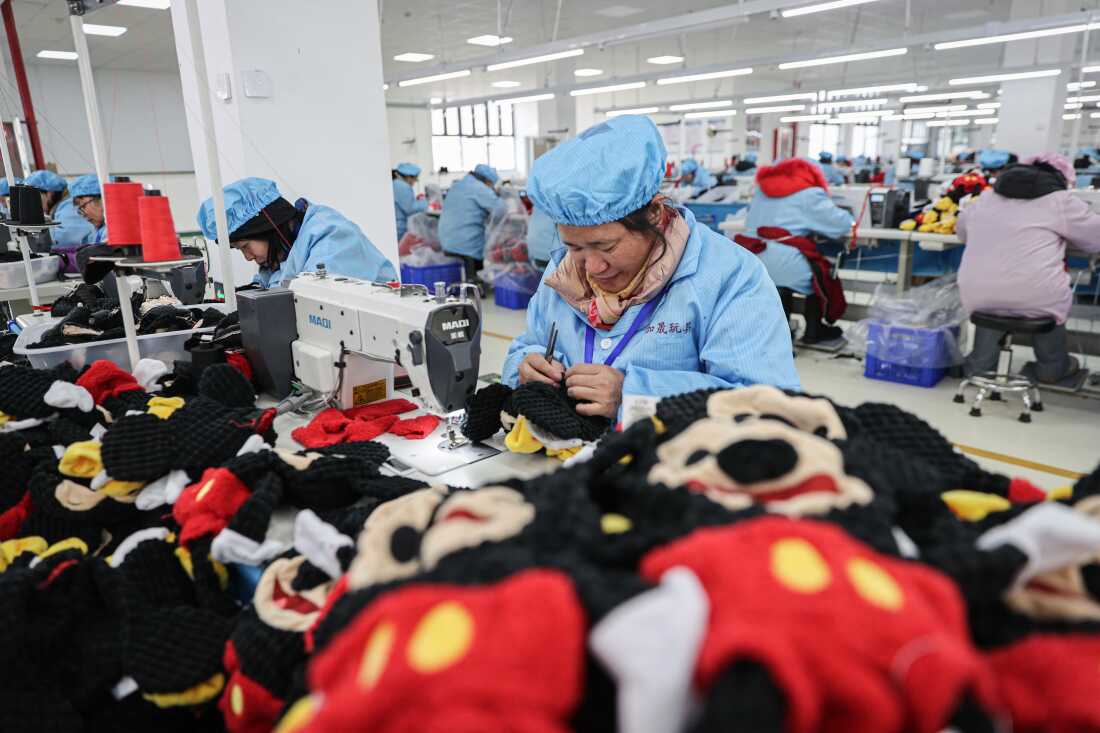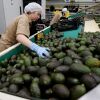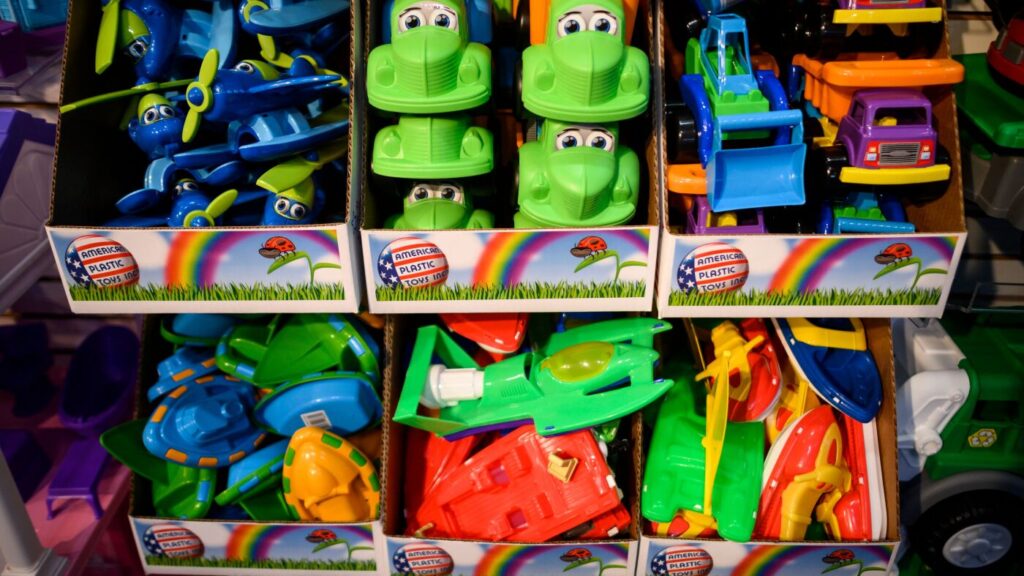
These plastic toys were manufactured by American Plastic Toys in Michigan. However, most toys sold in the United States are imported and may be subject to tariffs under the incoming Trump administration. Johannes Eisel/AFP via Getty Images Hide caption
toggle caption
Johannes Eisel/AFP via Getty Images
The holiday season is typically a festive time for children across the United States, but this year has been an anxious time for the nation’s toy manufacturers.
Most toys sold in the U.S. are made in China, and companies are worried they could get a lump of coal next year in the form of high import taxes promised by President-elect Donald Trump. .
That threat hung in the air last month at a trade show in Orlando, Florida, where toy retailers were already looking ahead to next year’s sales.
“All everyone was talking about was tariffs,” said Jay Foreman, CEO of Basic Fun, a toy company based in Boca Raton, Florida. “We know that if tariffs go into effect, prices will go up and it will affect consumers. So our industry is in complete panic.”
Foreman got his start in the toy business selling stuffed animals that were offered as prizes at many carnivals and beach promenades.
“People actually win them,” he says. “I can say that because I’ve made a career and a living selling that product.”
made in china
Foreman recalls that when he joined the industry in the mid-1980s, the toys he sold were still manufactured in Brooklyn, New York, by mostly undocumented workers. However, production soon moved overseas, first to South Korea and finally to China, which today dominates the global toy industry.
Foreman’s company sells a wide range of toys, from trendy items based on the latest Marvel movies to classic toys like Lincoln Logs and Tinker Toys.

China is one of the world’s leading toy producers, many of which are sold in the United States. During his presidential campaign, President-elect Donald Trump threatened to impose 60% tariffs on all imports from China. STR/AFP (via Getty Images) Hide caption
toggle caption
STR/AFP (via Getty Images)
He worries that 60% tariffs on Chinese goods, which President Trump promised during his presidential campaign, would raise prices and reduce sales. Toy companies may absorb some of the costs, but most will be passed on to consumers.
“You’re going to see a $30 Tonka Mighty Dump Truck become a $45 Tonka Mighty Dump Truck,” Foreman said. “The price of so many things that consumers buy at places like Walmart and Target and on Amazon will go up.”
Uncertain times for toy manufacturers
Toy makers may try to avoid the heftiest tariffs by moving factories to other countries, but that is not guaranteed.
“What it means is that we all started moving production from China to Vietnam, India, Mexico, and then the regime made a deal with China, and now the targets were Vietnamese, Indians, Mexicans. ” says the foreman. “Mexico is certainly on the horizon.”
In late November, President Trump threatened to impose 25% tariffs on imports from Mexico and Canada, the United States’ largest trading partners.

President Trump doesn’t always carry out such threats. In 2019, he was preparing to impose tariffs on toys, video games and cellphones from China, but backed down in part to avoid playing the Grinch and ruining the holiday season.
Toy companies could avoid tariffs entirely by manufacturing domestically. But Forman says that’s too expensive in most cases. And customers are usually reluctant to pay additional costs. For example, he tried manufacturing Lincoln logs in Maine, but ultimately moved production back to China.
“There were products on the shelves that said ‘Made in the USA,’ and products from competitors that were made in China were on the shelves,” Forman said. “Consumers are more concerned with value.”

Shipping containers are stacked on a container ship in the Port of Los Angeles, California, on December 4. Many businesses across the United States are trying to figure out how they could be affected by tariffs if President-elect Donald Trump follows through on his threats. Mario Tama/Getty Images Hide Caption
toggle caption
Mario Tama/Getty Images
Understand customs duties
Even toy makers that don’t rely on China are worried about how tariffs will affect their business. For example, American Plastic Toys still manufactures in the United States. Most of its toys are made of plastic moldings and do not require much labor. Toys also tend to be bulky, making them difficult to ship from overseas factories.
“We’re in a niche space,” said John Gessert, the company’s president.
Having a factory in Michigan also allows American Plastic Toys to deliver quickly, ensuring retailers never run out of toboggans in the winter or sand buckets in the summer.
“The last thing you want to do as a major retailer is have empty, unproductive shelf space,” says Gessert. “We’re here to backfill. We can respond quickly if needed.”

Taxing imported toys could give Mr. Gessert’s company an advantage over its foreign competitors, but Mr. Gessert isn’t counting on it.
“We’ve been making toys since 1962,” he says. “If we had designed our business model based on tariffs being in place, we would not have been in business this long.”
Responsible for basic fun! It may make sense for the US to use tariffs to protect strategic industries such as advanced computer chips, but Tonka trucks and Tinker toys don’t belong in that category. He says no.
“Be diligent, careful, and selective about what you protect,” Forman said. “We don’t need to make things like T-shirts and teddy bears and tennis shoes here.”



